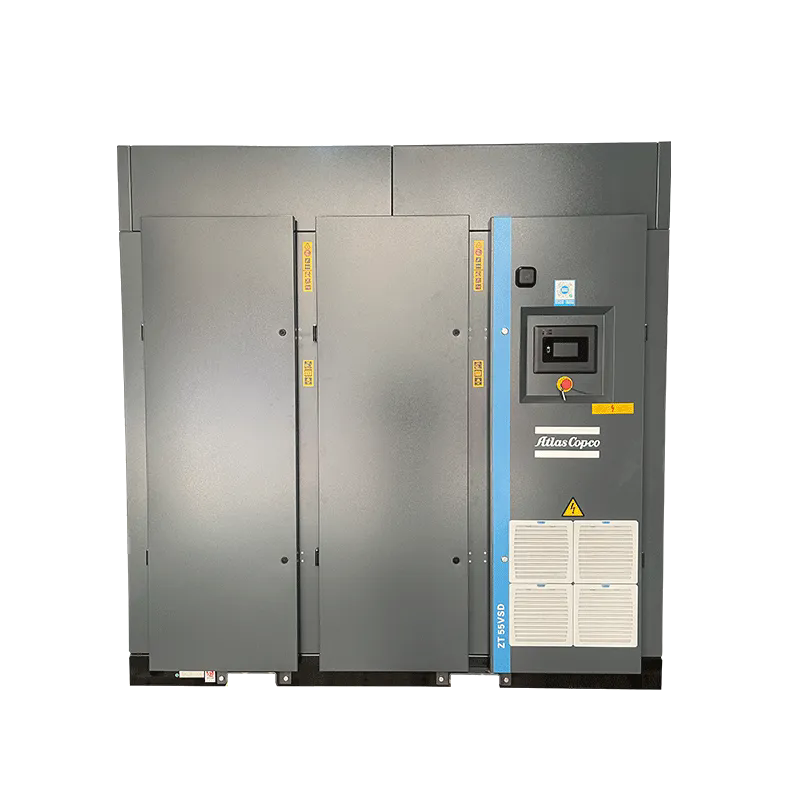Why Are Air Compressors Essential for Modern Industries and Homes?
2024-11-13
Air compressors are some of the most versatile and essential tools used across various industries and households. From powering heavy machinery on construction sites to inflating tires in your garage, air compressors provide reliable, consistent pressure for a wide array of applications. But what exactly makes air compressors so vital, and why should you consider using one in your workspace or home? In this blog, we will explore the importance of air compressors, their benefits, and the different types available for various needs.
What Is an Air Compressor?
An air compressor is a machine that converts power, typically from an electric motor or an engine, into compressed air. The machine works by drawing in air, compressing it, and then storing it in a tank under high pressure. This compressed air can then be released in a controlled manner to power tools, equipment, or even air-powered machinery.
There are two primary types of air compressors:
- Positive displacement compressors: These trap a certain volume of air and then reduce its volume to increase the pressure.
- Dynamic compressors: These use high-speed rotating blades to compress air.
Within these two categories, there are different models tailored to various applications, such as piston compressors, rotary screw compressors, and scroll compressors.
Why Are Air Compressors Important?
1. Powering Tools and Machinery
One of the most common uses of air compressors is to power pneumatic tools. Pneumatic tools, such as drills, impact wrenches, grinders, and sanders, rely on compressed air to function. These tools are more efficient, require less maintenance, and offer higher power-to-weight ratios than their electric counterparts. In industries like automotive repair, construction, and manufacturing, air compressors are critical for driving productivity and improving the performance of essential tools.
In manufacturing plants, air compressors are often used to power conveyor belts, assembly lines, and other machines that rely on air-driven components. These compressors ensure that production processes run smoothly, efficiently, and consistently, improving overall output.
2. Versatility Across Industries
Air compressors are used across nearly every industry, from automotive and construction to food production and pharmaceuticals. In the automotive industry, air compressors are used for tire inflation, sandblasting, and powering paint sprayers. In construction, compressors help operate power tools, move equipment, and even drive machines that dig or drill.
In industrial settings, compressed air is used to power automated machines, run manufacturing equipment, clean parts, and control systems. The versatility of air compressors makes them indispensable in a range of tasks, offering an efficient and reliable power source across different industries.
3. Energy Efficiency and Cost Savings
Air compressors can also be a cost-effective and energy-efficient solution. Compared to electric-powered machinery, air-powered tools are often more energy-efficient, requiring less electricity to perform the same tasks. The beauty of air compressors is that once the air is compressed and stored in a tank, it can be used repeatedly without needing additional power, thus saving on energy costs in the long run.
Moreover, when integrated into manufacturing and industrial operations, air compressors can help reduce operational costs by streamlining work processes. In many cases, they are more affordable to maintain than other power sources, such as electric motors or combustion engines.
4. Improving Work Safety
Air compressors also contribute to workplace safety. Unlike electric tools, which can overheat or create sparks, pneumatic tools powered by air compressors are safer for use in explosive or flammable environments. Since they don’t rely on electrical components that might pose a fire hazard, they are the preferred choice in industries like mining, construction, and oil and gas extraction, where safety is a critical concern.
Additionally, air-powered tools are generally lighter than electric or hydraulic tools, reducing the strain on workers and improving ergonomics, especially for jobs requiring long hours of tool use.
Types of Air Compressors and Their Uses
There are various types of air compressors, each suited to specific applications. Understanding the differences can help you choose the right compressor for your needs.
1. Piston (Reciprocating) Compressors
Piston compressors are commonly used in both home and industrial settings. They use a piston to compress air, making them ideal for small to medium-scale applications, such as home workshops, garage use, and auto repair shops. Piston compressors are versatile and affordable, and they typically come in two types:
- Single-stage compressors: Compress air in one stroke, suitable for low- to medium-pressure applications.
- Two-stage compressors: Compress air in two strokes, ideal for higher pressures and more demanding tasks, such as larger manufacturing operations.
2. Rotary Screw Compressors
Rotary screw compressors are more suited for continuous, high-demand applications, like in factories or large industrial facilities. These compressors use two interlocking screws to compress the air, providing continuous airflow without the cycling on and off that piston compressors require. Rotary screw compressors are energy-efficient and can deliver more consistent pressure for large-scale operations.
3. Scroll Compressors
Scroll compressors use two spiral-shaped scrolls to compress air and are typically used in smaller applications, such as HVAC systems, air conditioning, and refrigeration. They are quieter, more efficient, and require less maintenance than other types of compressors.
4. Centrifugal Compressors
Centrifugal compressors are high-capacity machines typically used in large-scale industrial processes. They use centrifugal force to compress the air, making them highly effective for large operations that require high-flow rates of air, such as in power plants or oil refineries.
Benefits of Using Air Compressors
- Reliability: Air compressors are known for their dependability. Once the system is set up and the air is compressed, it can be used repeatedly without additional energy input.
- Reduced Operating Costs: Because compressed air is stored and can be reused, you don’t need to keep generating it, which lowers the energy needed for each task.
- Improved Performance: Air-powered tools tend to work faster and more efficiently than electric ones. They can also perform more consistently under demanding conditions.
- Compact and Easy to Use: Air compressors come in various sizes, from small portable units for home use to large industrial compressors. Most are easy to operate and maintain, making them ideal for both DIY enthusiasts and professionals alike.
- Environmentally Friendly: Air compressors don’t rely on fossil fuels and produce fewer emissions than internal combustion engines, making them a more environmentally friendly option for power.
Conclusion
Whether you're a professional in the industrial sector or simply a DIY enthusiast in your garage, air compressors are essential tools that provide power, efficiency, and versatility across various applications. Their ability to handle multiple tasks—from inflating tires to powering heavy machinery—makes them indispensable in both everyday use and large-scale industrial settings.
Choosing the right air compressor depends on your specific needs, but no matter which type you choose, the benefits of increased efficiency, cost savings, and safety make it an invaluable investment. As technology continues to advance, air compressors will likely become even more efficient, versatile, and sustainable, playing an even greater role in powering the industries and homes of tomorrow.



